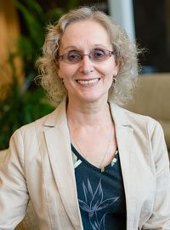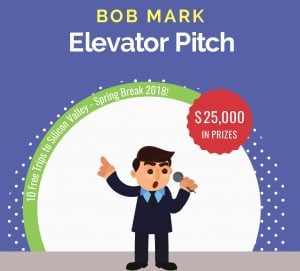 EE major Cameron Philo received “Best Green Innovation” at the 2017 Bob Mark Elevator Pitch Competition held Saturday in the Van Pelt and Opie Library.
EE major Cameron Philo received “Best Green Innovation” at the 2017 Bob Mark Elevator Pitch Competition held Saturday in the Van Pelt and Opie Library.
Philo was selected for his “3D Windmill,” a unique compact windmill design to bring electricity to underdeveloped regions. Along with the $250 cash prize, Philo will join the other 10 award recipients in Silicon Valley during Spring Break 2018.
For a complete list of prize winners see Tech Today.
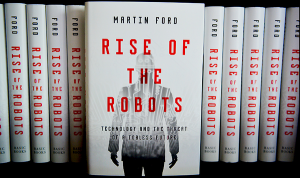 Last weekend Michigan Tech was privileged to host Silicon Valley entrepreneur and writer Martin Ford, author of the NY Times bestseller Rise of the Robots, which is all about the disruptive changes in the recent past and future in the areas of robotics, control, and automation, and the implications for our society and our economy. I was able to join Mr. Ford for a couple of different question-and-answer sessions with interested faculty, and to attend his presentation at the Rozsa Center which was open to the general public. I found the entire day to be stimulating and compelling, and I was very happy about the fact that Career Services and the Rozsa Center were able to work together and pull this off. The evening presentation was very well attended and included a lot of students. I was impressed that so many people were willing to give up their Saturday to hear a PowerPoint presentation about automation – but it really was that good.
Last weekend Michigan Tech was privileged to host Silicon Valley entrepreneur and writer Martin Ford, author of the NY Times bestseller Rise of the Robots, which is all about the disruptive changes in the recent past and future in the areas of robotics, control, and automation, and the implications for our society and our economy. I was able to join Mr. Ford for a couple of different question-and-answer sessions with interested faculty, and to attend his presentation at the Rozsa Center which was open to the general public. I found the entire day to be stimulating and compelling, and I was very happy about the fact that Career Services and the Rozsa Center were able to work together and pull this off. The evening presentation was very well attended and included a lot of students. I was impressed that so many people were willing to give up their Saturday to hear a PowerPoint presentation about automation – but it really was that good.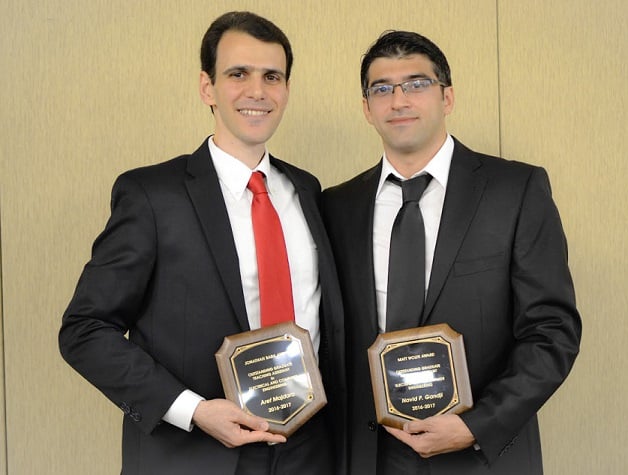
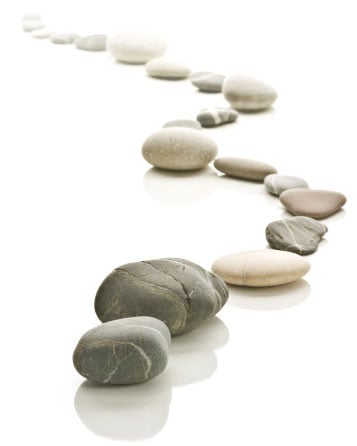 Today is the last day of our first week of the fall semester, and students are already getting their first break from classes. Later today is K-Day (short for Keweenaw Day), an outdoor event with food, music, and lots of practical information about activities at Michigan Tech, held at McLain State Park, on the shores of Lake Superior about 10 miles from campus.
Today is the last day of our first week of the fall semester, and students are already getting their first break from classes. Later today is K-Day (short for Keweenaw Day), an outdoor event with food, music, and lots of practical information about activities at Michigan Tech, held at McLain State Park, on the shores of Lake Superior about 10 miles from campus.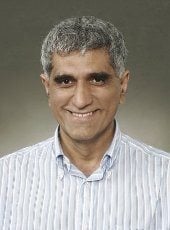
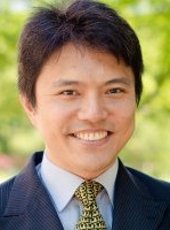
 In an interview with
In an interview with 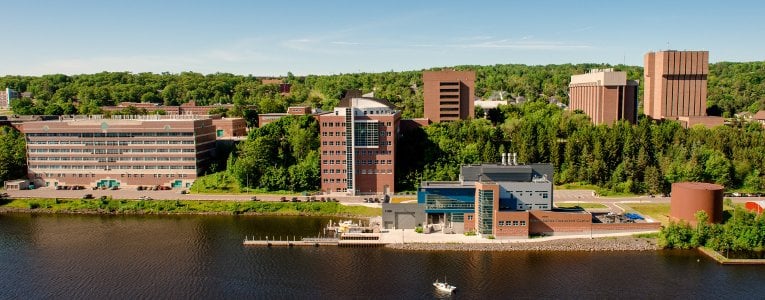 Greetings to everyone from the chair’s office in the ECE Department! Here we are again, at the cusp of a new academic year at Michigan Tech. The new students have already been on campus for a week, for orientation, and classes start next Tuesday. As much as I love the beautiful quiet summers here, I get energized by the new and returning students, the new faculty members across campus, and the overall “buzz” of activity that accompanies the new year. Game on!
Greetings to everyone from the chair’s office in the ECE Department! Here we are again, at the cusp of a new academic year at Michigan Tech. The new students have already been on campus for a week, for orientation, and classes start next Tuesday. As much as I love the beautiful quiet summers here, I get energized by the new and returning students, the new faculty members across campus, and the overall “buzz” of activity that accompanies the new year. Game on!